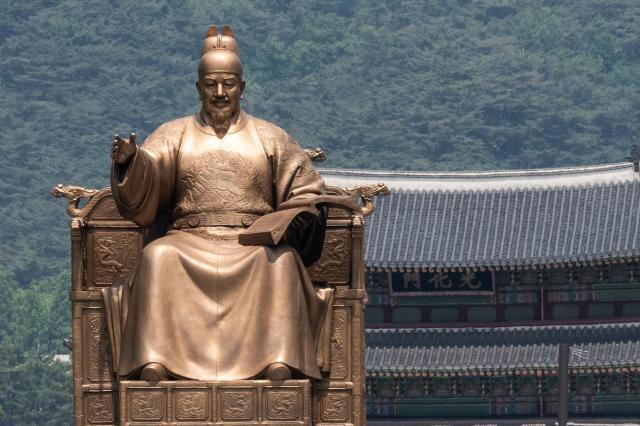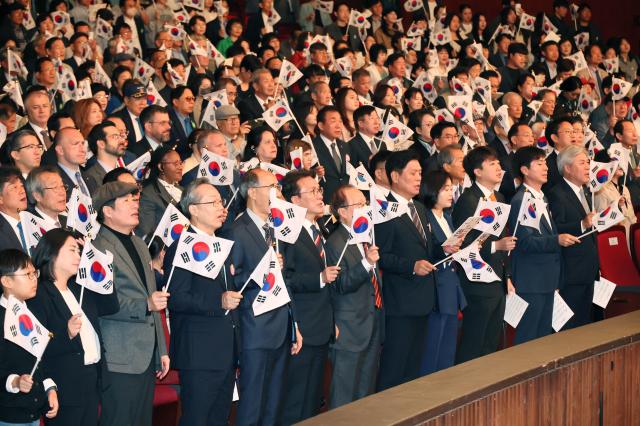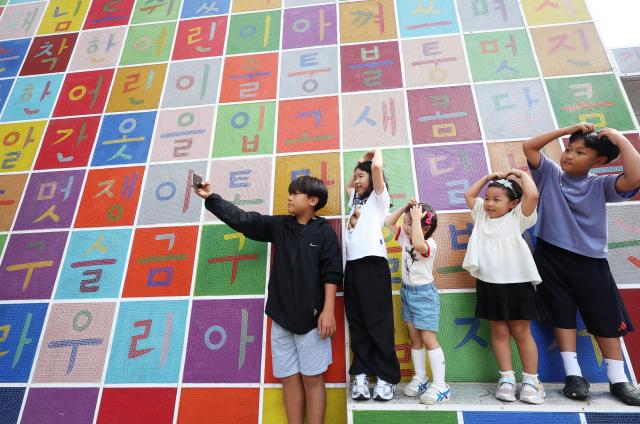
SEOUL, October 09 (AJP) - South Korea marked Hangul Day on Thursday, celebrating the 579th anniversary of the creation of the Korean alphabet that gave ordinary people the power to read, write, and express their thoughts freely. President Lee Jae Myung said Hangul embodies the spirit of popular sovereignty and equality, calling it a living symbol of democracy rooted in the wisdom of the people.
"Hangul is a cultural heritage that holds the spirit and history of our people," President Lee wrote on Facebook on Thursday. "It was created so that ordinary citizens could learn it easily and use it every day. In Hangul lives the idea of democracy, equality, and the sovereignty of the people."
He said 252 King Sejong Institutes in 87 countries are now spreading the Korean language and culture, and that the growing global interest in K-pop, K-drama, and Korean literature "stems from Hangul’s power to express emotions and ideas clearly, without distortion." Lee added, "The dream of South Korea becoming a true cultural powerhouse is turning into reality through Hangul, the root of our culture."
Hangul was invented by King Sejong the Great in 1443 and proclaimed nationwide in 1446. The king and his scholars at the Hall of Worthies created the writing system to help commoners overcome their reliance on classical Chinese, which only the educated elite could master. The preface of the original text, known as the "Hunminjeongeum," explains that the letters were designed so the people could learn and use them easily in their daily lives. The simple and scientific structure of Hangul laid the foundation for South Korea's high literacy rate and strong intellectual tradition today.

An official ceremony to mark the 579th Hangul Day was held at the Sejong Center for the Performing Arts in Seoul. About 1,200 people attended, including government officials, politicians, diplomats, and members of Hangul-related organizations. The event opened with media art and a ballet performance, followed by a reading of the original Hunminjeongeum text by Korean Language Society president Kim Ju-won and an interpretation by contemporary artist Lee Dae-in. Awards were presented to eight individuals and institutions for their contribution to promoting Hangul, including American scholar Mark Allen Peterson and the Korean School of Montreal.
Prime Minister Kim Min Seok said during his speech that "the Korean language and Hangul are at the heart of K-culture." He noted that the world connects through K-pop lyrics and feels emotion through Korean dramas and films because of the language's precision and depth of expression. "Hangul is no longer a script used only by us," he said, adding that young people around the world are learning Korean to understand its music, stories, and humor.
Demand for learning Hangul has surged along with the global popularity of South Korean pop culture. Kim Ju-won, president of the Korean Language Society and professor emeritus at Seoul National University, said in an interview with AJP, "Now is the best time to promote Hangul, which is gaining traction worldwide, largely thanks to the resurgence of the Korean Wave." He said many foreign fans want to understand the lyrics of BTS songs and watch Korean dramas like Netflix’s "Squid Game" without subtitles.

According to data from language app Duolingo, 17 million users were learning Korean as of June 2024, a 95 percent increase over two years earlier. The King Sejong Institute reported that its number of students jumped from 740 in 2007 to more than 216,000 in 2023. The number of people taking the Test of Proficiency in Korean (TOPIK) rose from 149,000 in 2010 to 275,000 in 2023.
Kim emphasized that Hangul's scientific design makes it accessible to learners around the world. "Unlike the Roman alphabet, where a single letter can have multiple pronunciations, each letter in Hangeul corresponds to a specific sound," he said. "That makes it easier for learners to spell and pronounce words accurately." He also mentioned the case of the Cia-Cia tribe in Indonesia, which adopted Hangul as its official writing system in 2008 for its previously unwritten native language.
Kim said he hopes to extend Hangul's use to other minority groups with unwritten languages. His team at Seoul National University is analyzing more than 30 languages, including Yoruba from Nigeria and Aymaran from South America, to explore how Hangul could be adapted for their use.
Copyright ⓒ Aju Press All rights reserved.


![[Shanghai Expo] Promoting The Beauty of Korean Alphabet, Hangul](https://image.ajunews.com/images/site/img/ajunews/list_noimg.jpg)